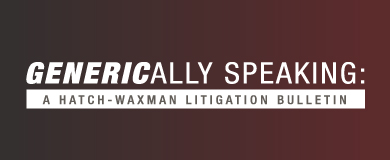- Acumen Powered by Robins Kaplan LLP®
- Affirmative Recovery
- American Indian Law and Policy
- Antitrust and Trade Regulation
- Appellate Advocacy and Guidance
- Business Litigation
- Civil Rights and Police Misconduct
- Class Action Litigation
- Commercial/Project Finance and Real Estate
- Corporate Governance and Special Situations
- Corporate Restructuring and Bankruptcy
- Domestic and International Arbitration
- Entertainment and Media Litigation
- Health Care Litigation
- Insurance and Catastrophic Loss
- Intellectual Property and Technology Litigation
- Mass Tort Attorneys
- Medical Malpractice Attorneys
- Personal Injury Attorneys
- Telecommunications Litigation and Arbitration
- Wealth Planning, Administration, and Fiduciary Disputes
Acumen Powered by Robins Kaplan LLP®
Ediscovery, Applied Science and Economics, and Litigation Support Solutions
-
April 15, 2024Robins Kaplan Named to 2024 BTI Client Service A-Team
-
April 9, 2024Robins Kaplan LLP Files Complaint Against Social Media Giants Meta, Snap, TikTok on Behalf of Spirit Lake Nation, Menominee Indian Tribe of Wisconsin
-
April 8, 2024Tara Sutton, Emily Tremblay Shortlisted for Euromoney’s Women in Business Law Awards
-
April 24, 2024IP Leadership Executive Summit
-
April 24, 2024IP Odyssey: Navigating the Latest Developments in Intellectual Property Law
-
April 30, 2024Navigating Generational Dynamics
-
March 2024e-Commerce: Pitfalls and Protections
-
March 22, 2024‘In re Cellect’:
-
March 14, 2024How Many Cases Have You Tried to a Verdict?
-
September 16, 2022Uber Company Systems Compromised by Widespread Cyber Hack
-
September 15, 2022US Averts Rail Workers Strike With Last-Minute Tentative Deal
-
September 14, 2022Hotter-Than-Expected August Inflation Prompts Massive Wall Street Selloff
Find additional firm contact information for press inquiries.
Find resources to help navigate legal and business complexities.
Purdue Pharma L.P. v. Collegium Pharm., Inc.
There is no personal jurisdiction over defendant when PIV Certification notice letter was mailed to one state and defendants were headquartered in another state.
October 15, 2015

Case Name: Purdue Pharma L.P. v. Collegium Pharm., Inc., 15-260-SLR, 2015 U.S. Dist. LEXIS 102899 (D. Del. Aug. 6, 2015)
Drug Product and Patent-in-Suit: Oxycontin® (oxycodone); U.S. Patents Nos. 7,674,799 ("the '799 patent"), 7,674,800 ("the '800 patent"), and 7,683,072 ("the '072 patent")
Nature of the Case and Issue(s) Presented: Purdue, a Delaware corporation and the manufacturer of Oxycontin, was engaged in litigation in the Southern District of New York, where the ’799 and ’800 patents were found to be invalid. Purdue appealed that decision. Meanwhile, Collegium, a Virginia corporation, filed a new drug application seeking to sell "an abuse-deterrent, extended release formulation of oxycodone." Purdue claimed that it was entitled to data exclusivity for Oxycontin’s abuse-deterrent clinical studies until April 2016, prohibiting FDA approval of Collegium’s drug until then. After receiving Collegium’s PIV Certification notice letter, Purdue filed this suit in the District of Delaware. Purdue also filed a protective suit in Massachusetts, and sought to stay all cases until the final decision on appeal regarding the validity of its patents. Collegium moved to dismiss the case for a lack of personal jurisdiction. The District of Delaware agreed, and transferred the matter to the District of Massachusetts.
Why Collegium Prevailed: First, the court addressed general jurisdiction. Because Collegium was not currently incorporated in Delaware, and because Delaware was not Collegium’s principal place of business, Delaware was not a "clear and certain" forum in which Collegium could expect to be sued. Thus, the court did not have general jurisdiction over Collegium.
The court also determined that it did not have specific jurisdiction over Collegium. Collegium did not send its PIV Certification notice letter to Purdue in Delaware. In addition, Collegium was not registered to do business in Delaware. Although the oxycodone that Collegium used in its drug was manufactured in Delaware, oxycodone is a basic API that is subject to multiple patents and available in multiple dosage forms. The court determined that this was insufficient to establish jurisdiction over Collegium. Further, because Purdue’s complaint did not arise from the sale of the oxycodone to Collegium, Collegium did not have a reasonable expectation of being sued in Delaware. Thus, it would be unconstitutional for the court to exercise jurisdiction over Collegium.
Massachusetts, on the other hand, was the appropriate venue for the litigation. Collegium’s headquarters are located in Massachusetts and it conducted business in that state. Thus, the court dismissed the instant action so that Purdue could pursue its protective lawsuit in Massachusetts.
Related Publications
Related News
If you are interested in having us represent you, you should call us so we can determine whether the matter is one for which we are willing or able to accept professional responsibility. We will not make this determination by e-mail communication. The telephone numbers and addresses for our offices are listed on this page. We reserve the right to decline any representation. We may be required to decline representation if it would create a conflict of interest with our other clients.
By accepting these terms, you are confirming that you have read and understood this important notice.
